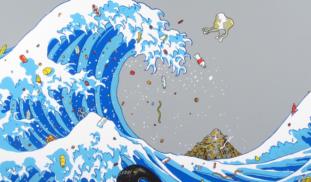83
-1
3
Please wait...
About This Project
Our oceans are full of microplastics with potentially massive impacts on our marine environments. This research focuses on an unsuspected effect: do microplastics influence climate change? Our laboratory results suggest that microplastics may modify the microbial dynamics of carbon and oxygen. We want to further explore it in mesocosms, where large volumes of enclosed seawater can be examined under controlled and simulated conditions, like a “future” plastic ocean.

Browse Other Projects on Experiment
Related Projects
What leads to eruption? A test case at South Sister volcano.
We can't predict eruptions but we can forecast probabilities with enough information. South Sister volcano...
Can alkalinity enhancement remove carbon and restore corals?
Corals Reefs are threatened by warming oceans and acidification, both of which are direct consequences of...
Can lead and limestone contamination of soil and water in mine sites affect agronomic productivity and inhabitants?
The research studies the soil and water metrics of solid minerals in two major mining sites( lead mine at...




